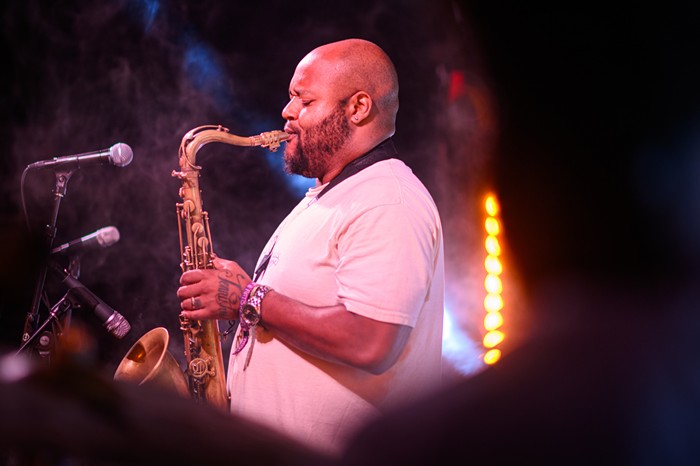There are two versions of the Chromatics. Version number one was a spastic noise-rock band that obliterated basements, toured with the Gossip, and caused a general sense of uneasy chaos in their brief run. That band is dead. Then there is the Chromatics redux. Refusing to let the original band completely fade into the endless void that devours deceased indie acts, original member Adam Miller teamed with Glass Candy's Johnny Jewel to resurrect the Chromatics—if in name only—for the Chromatics' second act is far removed from (and far more important than) their early jagged art-punk days.
The original Chromatics were all flailing limbs and jittery teenage energy, while their current incarnation is a drop-dead sexy shuffle through stylish Euro disco-pop. On last year's well-received Night Drive, the icy cold vocals of frontwoman Ruth Radelet resonate with a deliberately emotionally distant tone. It's a voice so stunning that it suggests her past is littered with enough regret to fill a thousand records like Night Drive. And while her vocals are frosty, keeping listeners at an arm's distance, her restrained delivery is difficult to not obsess over. Even her speaking voice—which starts the album off with a phone call as she flees an "all right" night at the club, calling her lover to say she is en route and will pick up a couple bottles of wine, only after she takes a long (night) drive by herself—feels mysterious. And while the Nico comparison might be the first to spring to mind, Radelet's artist-trapped-in-pop-music delivery is closer to a disco-pop Kate Bush, who the band gracefully covers ("Running up That Hill") on the album.
"Night Drive came out of a slow studio process that ended up taking about three years to write," says Jewel. "Most people who are into the Chromatics now think it's our debut record—that's especially the case in Europe—but our younger American audiences have no memory of the older group. At this point, the first incarnation of the Chromatics and the current one are two totally different bands."
But Jewel's biggest revelation comes when he divulges that the Chromatics—who have done something so few bands ever do: completely scorch the earth and start anew, then succeed in ways their previous incarnation never did—are over. "We're changing the name in the fall," says Jewel. "We have a new name, but aren't announcing it until the new LP comes out in the spring. There will be new ideas introduced with the new record; same lineup, same sound, just an evolution."
Which means that this week's show—part of the one-year anniversary of the Nightclubbing series—will be the final Chromatics performance ever in Portland. Their final two shows, as of now, are in the odd combination of Benicàssim, Spain (for the Festival Internacional de Benicàssim) and Moscow. It's a mysterious exit that only adds to the clouded nature of the band—members are seldom identified, they refuse to have a publicist, and the band seems to purposefully exist in a world entirely their own—which is just fine by Jewel. "A certain amount of mystery is always good. We love the music, but we don't love the music industry."



















